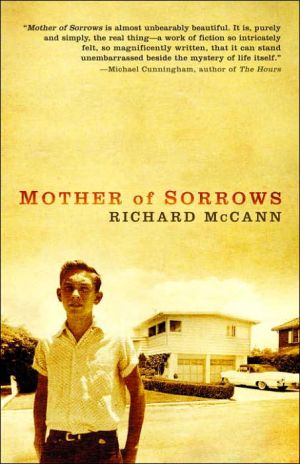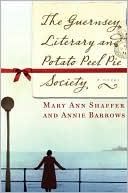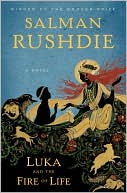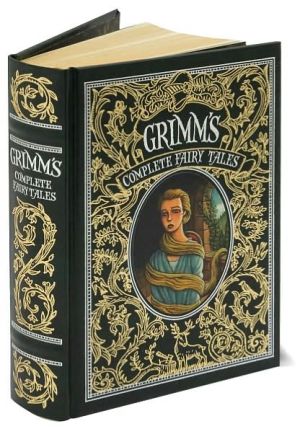Mother of Sorrows
In these ten interwoven stories, two adolescent brothers face a world in which their father has suddenly died, a world dominated by their beautiful and complicated mother. Thirty years later, one of the brothers–the only remaining survivor of a family he seeks both to leave behind and to preserve in words forever–narrates these precise and heartbreaking tales. Suffused with the beauty of Richard McCann’s extraordinary language, Mother of Sorrows introduces us to an elegant writer like no...
Search in google:
In these ten interwoven stories, two adolescent brothers face a world in which their father has suddenly died, a world dominated by their beautiful and complicated mother. Thirty years later, one of the brothers–the only remaining survivor of a family he seeks both to leave behind and to preserve in words forever–narrates these precise and heartbreaking tales. Suffused with the beauty of Richard McCann’s extraordinary language, Mother of Sorrows introduces us to an elegant writer like no other in contemporary fiction.The New York Times - Mark KamineMcCann's pointillist approach his stories tend to accumulate incidents rather than depict sustained events has surprising momentum, and together the stories acquire a rare thematic richness. Thus the perfectly engineered payoff to ''My Brother in the Basement,'' in which the narrator's hidden sexuality is contrasted with his brother's tormented openness, reverberates in the next and final story, ''The Universe, Concealed,'' about the narrator's ostensibly invisible illness.
Crêpe de Chine\ Each night, after dinner, my father went downstairs to his workbench to build birdhouses, which he fashioned from scraps of wood left over from pine-paneling our basement. He was a connoisseur of birdhouses, my mother said. His favorite was a miniature replica of our ranch house, with a tiny Plexiglas picture window, a red Dutch door, and a shingled roof. It was a labor of love, he said the night he completed it.\ My brother, Davis, went to his room, where he listened to Radio Moscow on his shortwave. As for me: I cleared the table.\ “Sit with me, son,” my mother said. “Let’s pretend we’re sitting this dance out.”\ She told me I was her best friend. She said I had the heart to understand her. She was forty-six. I was nine.\ She sat at the table as if she were waiting to be photographed, holding her cigarette aloft. “Have I told you the story of my teapot?” she asked, lifting a Limoges pot from the table. She had been given the teapot by her mother, whom we called Dear—Dear One, Dear Me, Dearest of Us All. Dear had just recently entered a sanatorium for depression, after having given away some of her most cherished possessions. When she died at home a few months later—she’d returned to her deteriorated Brooklyn brownstone, where she slept on a roll-away bed in the basement—my mother found she’d left an unwitnessed will written entirely in rhymed couplets: “I spent as I went / Seeking love and content,” it began.\ “No,” I told my mother as I examined the teapot’s gold-rimmed lid, “you haven’t told me about it.”\ In fact, by then my mother had already told me about almost everything. But I wanted to hear everything again. What else in Carroll Knolls—our sunstruck subdivision of identical brick houses—could possibly have competed with the stories my mother would summon from her china or her incomplete sterling tea service or the violet Louis Sherry candy box where she kept her dried corsages? I wanted to live within the lull of her voice, soft and regretful, as she resuscitated the long-ago nights of her girlhood, those nights she waited for her parents to come home in taxicabs from parties, those nights they still lived in the largest house on Carroll Street, those nights before her parents’ divorce, before her father started his drinking.\ She whispered magic word: crêpe de chine, Sherry Netherlands, Havilland, Stork Club, argent repousée . . .\ Night after night she told me her stories.\ Night after night I watched her smoke her endless Parliaments, stubbing out the lipstick-stained butts in a crystal ashtray. We sat at the half-cleared table like two deposed aristocrats for whom any word might serve as the switch of a minuterie that briefly lights a long corridor of memory—so long, in fact, the switch must be pressed repeatedly before they arrive at the door to their room.\ She said her mother had once danced with the Prince of Wales.\ She said her father had shaken hands with FDR and Al Capone.\ She said she herself had once looked exactly like Merle Oberon.\ To prove it, she showed me photos of herself taken during her first marriage, when she was barely twenty. From every photo she’d torn her ex-husband’s image, so that in most of them she was standing next to a jagged edge, and in some of them a part of her body—where he’d had his hand on her arm, perhaps—was torn away also.\ She said life was fifty-fifty with happiness and heartache.\ She said that when she was a girl she’d kept a diary in which she’d recorded the plots of her favorite movies.\ She said that if I was lucky I too would inherit the gift of gab.\ When I was little, she read me Goodnight, Moon. Goodnight, nobody. Goodnight, mush. And goodnight to the old lady whispering “hush.”\ But otherwise, she read me no bedtime books. She told me no fairy tales.\ Instead she came to my room at night to tell me stories that began like these: Once upon a time, I had a gold brush and comb set. Once upon a time, my parents looked like F. Scott and Zelda Fitzgerald. Once upon a time, I rode a pony in Central Park. Once upon a time, I had a silver fox coat.\ Things she told me, sitting on the edge of my bed at night:\ “I was born with a caul. That means I have a sixth sense.”\ Or, touching her perfumed wrist to my cheek: “This is called ‘Shalimar.’ ”\ Or, faintly humming: “Do you know this tune? Do you know ‘When I Grow Too Old to Dream, I’ll Have You to Remember’?”\ Or sometimes when she coughed—her “nervous cough,” her “smoker’s cough”—she said, “One day, after I’m gone, you’ll hear a woman cough like this, and you’ll think she is me.”\ From the Hardcover edition.
Crepe de Chine3My mother's clothes : the school of beauty and shame7Dream house32The diarist52Snapshots of the visible man83Some threads through the Medina92Fugitive light, old photos109Eduardo's hair119My brother in the basement123The universe, concealed162
\ Mark KamineMcCann's pointillist approach — his stories tend to accumulate incidents rather than depict sustained events — has surprising momentum, and together the stories acquire a rare thematic richness. Thus the perfectly engineered payoff to ''My Brother in the Basement,'' in which the narrator's hidden sexuality is contrasted with his brother's tormented openness, reverberates in the next and final story, ''The Universe, Concealed,'' about the narrator's ostensibly invisible illness.\ — The New York Times\ \ \ \ \ Publishers WeeklyThough it is a work of fiction, this slim volume of interconnected stories a collection 18 years in the making by the codirector of the graduate program in creative writing at American University reads like a memoir; an unnamed first-person narrator leads the reader through meticulously constructed scenes from his past, musing on self, sexual identity and family dynamics. The earliest chapters are set in a suburb of Washington, D.C., in the 1950s. The narrator is a child, growing up gay in classic fashion, obsessed with his glamorous mother and chastised by his father for things like "cutting out Winnie Winkle fashion dolls from the Sunday funnies or designing elaborate ball gowns for my favorite movie stars." When he dresses in his mother's clothes with another boy, he is caught; a fishing expedition with his father is a failure. The narrator's transition into adulthood is hardly any easier: his father dies young; his brother, Davis, also gay, is arrested several times and eventually dies of a drug overdose. And in the final section, the narrator is revealed to have AIDS, a disease that has claimed the lives of many friends. McCann's calm, elegiac prose is lovely in descriptive passages, but turns stiff and self-conscious in the frequent explanations the narrator offers for his behavior and that of others. Still, McCann's graceful writing carries these bittersweet snapshots of a life plagued by self-doubt and yearning. Agent, Gail Hochman. (Apr. 26) Copyright 2005 Reed Business Information.\ \ \ KLIATT\ - Nola Theiss\ In this collection of ten short stories, McCann writes about a young man's boyhood in suburban Maryland with his older brother, his beautiful mother and, for a while, his father, who dies when he and his brother are very young. The stories are fiction, but because they are interwoven and begin when the boys are young until finally the narrator is alone and sick, they seem like a memoir. Both of the brothers are gay and they go through their adolescence, young manhood and maturity from the decades of the ‘60s through the turn of the century, experiencing the torments the years bring: drugs, sexual promiscuity, AIDS, and the death of friends. One story, about the brother's death, is particularly graphic, but none of the stories are pleasant as the young narrator experiences a sanitized but confusing childhood filled with misdirected love and then, with his father's death, missing love. The mother is dominant in his life and both he and his brother struggle to be free. Full of angst, the stories are well written, but appropriate for only the most mature YAs.\ \ \ \ \ Library JournalIn these interwoven stories, set in the suburbs of Washington, DC, the narrator's father dies when he is 11, and he and his brother are raised by their mother, Maria. Beset by her own sorrows after the loss of her mother as well, Maria turns to alcohol. The boys must cope without her help as they grow up in post-World War II America, making friends and coming to terms with their sexuality in a world of fallout shelters and tract houses. The narrator recognizes that he is different after he and a friend begin dressing up in his mother's clothes one summer. He later finds out that his brother is gay as well. Written in spare language, the stories variously show the narrator's young life and his attempt to build an adult life while coping with his shell of a family. Unfortunately, the disjointed text makes it hard to care about the characters, and overall reading experience is fairly depressing. Recommended for larger literary collections with an emphasis on gay and lesbian literature. [See Prepub Alert, LJ 12/04.]-Robin Nesbitt, Columbus Metropolitan Lib., OH Copyright 2005 Reed Business Information.\ \ \ \ \ Kirkus ReviewsTen debut stories, spanning a period of 18-plus years, show a gay-oriented child on the one hand, and a gay adult on the other, yet they don't cohere satisfyingly. At first our unnamed narrator is in sixth grade, in the 1950s, living with his parents and older brother, Davis, in suburban Maryland. Along with his best friend, Denny, he likes to sneak into his mother's bedroom and try on her dresses. He feels "beautiful, and guilty." Then his mother finds out, and the narrator hates the exiled Denny-it's easier than hating himself. In these early stories, the narrator is a "Momma's boy," while Davis pals around with their father (whose sudden death from hepatitis will be awkwardly shoehorned in). Davis does traditional boy stuff, unlike his namby-pamby brother, so it comes as a shock to learn that Davis is shy and fearful in high school, more of a shock when he comes out while the narrator stays in the closet, making for a difficult sibling relationship. Where's the foreshadowing? The self-destructive Davis will be arrested three times, twice on drug charges, before fatally overdosing at 35. The narrator, with a better instinct for self-preservation, is now "the good son," though glimpses of his adult life keep us disoriented. In Tangiers, a sexual cornucopia, he's a shrinking violet, yet in Paris a quickie in a gay movie theater hits the spot. Later still, it emerges that his movie theater partner, Francisco, becomes a lover of sorts, contradicting an initial impression of anonymity. The treatment of an attorney, Eduardo, is similarly slipshod, shown as a long-term lover who unaccountably gets short shrift. Francisco and Eduardo both die of AIDS, as do many others, and in an odd littlecoda, the narrator and a female coworker who has lost her son join in a remembrance ritual on a lake. Tales too wispy to capture gay life-or death, either, in its different guises.\ \








